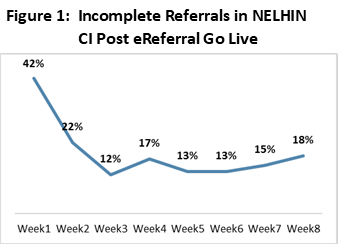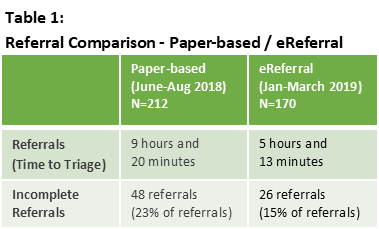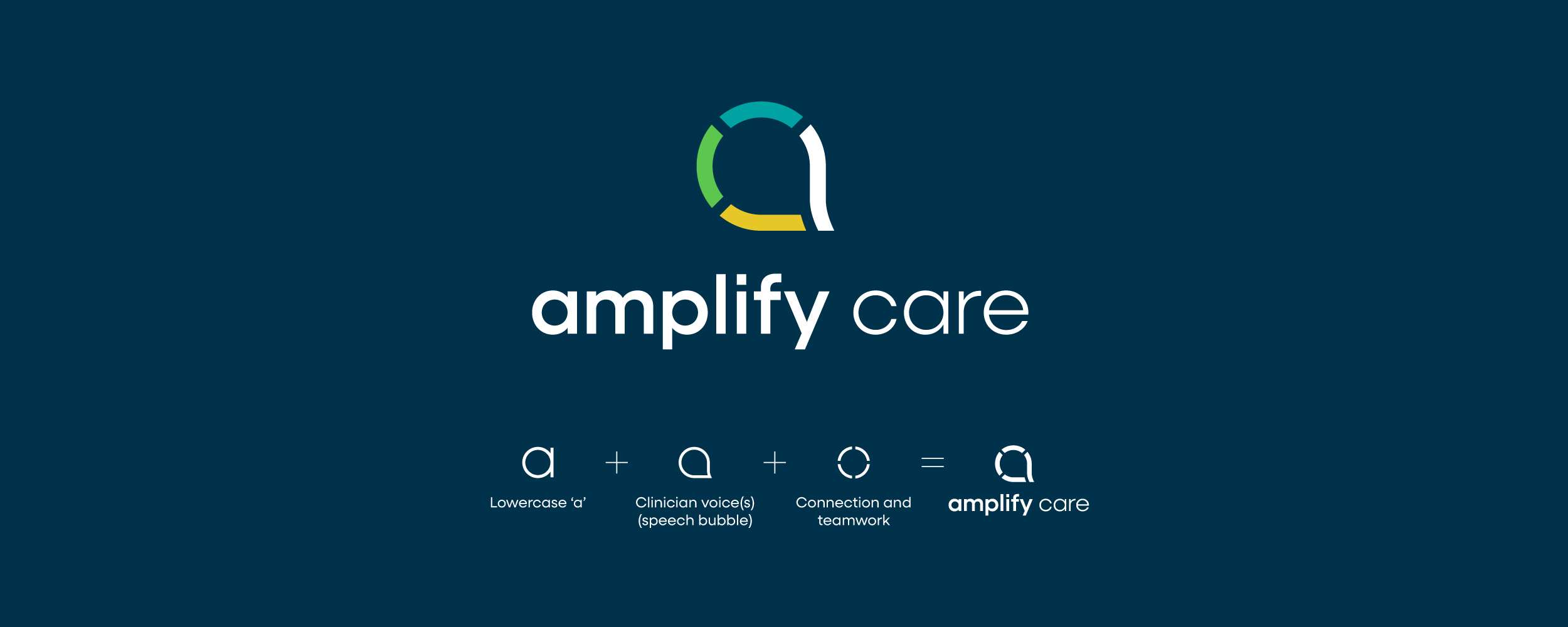eReferral and North East Assessment Centre central intake musculoskeletal process
In Canada, Orthopedic surgeons are considered the highest consulted specialists1 with more than 900,000 referred Musculoskeletal Disorder (MSD) patients a year2 and a median wait time of 13 weeks to receive a consultation.3 However, many patients are not considered suitable candidates for surgical care and can be managed using a combination of non-pharmacological and pharmacological therapies.4
In response, the Ontario Ministry of Health and Long-Term Care introduced an assessment model of care for Musculoskeletal (MSK) in 2010 and scaled the model to include Central Intake (CI) in all Local Health Integration Networks (LHINs) in 2017. At the same time, the System Coordinated Access (SCA) Program was funded to deploy Ocean electronic referral (eReferral) to support the provincial MSK model of care for hip, knee and low back pain in five LHINs (Waterloo-Wellington, Erie St. Clair, Champlain, North East and South East).
With the CI, primary care providers have one point of contact and standardized criteria for MSK referrals. CI ensures the removal of duplicates, the return of incomplete referral records, and the prioritization of services according to patients’ needs.5,6,7
At the Assessment Centre, patients are booked for evaluation with a target wait time of four weeks.8 The assessment process provides MSK hip and knee patients with a timely comprehensive assessment of their condition based on standardized outcome measures.8 Referrals can then be triaged to the proper treatment option.8 This will ensure that only suitable candidates are referred to surgeons, which will expand specialists’ capacity and potentially improve wait time and list management.8
The eReferral solution went live in the North East LHIN in September 2018. One of the Advanced Practice Physiotherapists (APP) at the North East Joint Assessment Centre (NEJAC) located in North Bay took the initiative to track the number of incomplete referrals and triage time prior to the eReferral go live and then again, approximately six months after go live. This data was used to compare the paper-based referral process to the eReferral process. In addition, the CI staff also collected data on completeness of referrals. In total, 2923 MSK referrals were processed through CI and directed to NEJACs with an average processing time of 0.49 days. The North Bay NEJAC received 545 referrals, of which 376 have been assessed to date. Sixty per cent (60%) of the people assessed were recognized as being suitable for a surgical consult.
Key takeaways
The electronic referral (eReferral) solution is enhancing the efficiency and completeness of referrals sent from Primary Care to Central Intake and Orthopedic Assessment Centres in the North East LHIN.
Benefits
Decrease in NE Central Intake Incomplete Referrals – Post Go Live
Between January and March 8, 2019, CI reported receiving:
- 874 referrals, of which 146 (19%) were considered incomplete referrals (no images attached or missing demographic information)
- 167 of these referrals were received in North Bay, of which 13% were considered incomplete referrals
In general, NE CI has reported a decrease in the number of the incomplete referrals received at CI (figure1).
North Bay NEJAC Incomplete Referrals Pre Go Live
Prior to going live with eReferral (June 19 – August 31, 2018), the North Bay NEJAC:
- Triaged a total of 212 referrals, which took the APP 560 minutes (9 hours and 20 minutes) to accomplish
- 23% (48) of these referrals were incomplete
Decrease in North Bay NEJAC Incomplete Referrals – Post Go Live
After the North Bay NEJAC went live with eReferral (between January 24 and March 31, 2019), 170 referrals were triaged at the NEJAC.
Only 15% (26 referrals) were considered incomplete either due to:
- duplicates (2);
- no x-ray was attached (12);
- or inappropriate images (12) were attached
As a result of eReferral, the time the APP spent triaging referrals was reduced to 313 minutes (5 hours and 13 minutes).


About the SCA Program
The System Coordinated Access (SCA) Program was originally initiated to support the development and adoption of electronic referral in the Waterloo Wellington region. As a result of an investment by the Ontario Government, the program, in collaboration with the Think Research Consortium (Think Research, CognisantMD and Centre for Effective Practice), has now expanded to support the implementation of Ocean eReferral to four additional LHINs.
eReferral replaces paper-based faxes with electronic referrals. Using integrated electronic medical records, referrals are sent, tracked and updated right from the patient’s electronic chart. The local SCA deployment teams provide training, solution set-up and support.
- Mackay C, Canizares M, Davis A, Badley E. Health Care Utilization for Musculoskeletal Disorders. Arthritis Care & Research. 2010; 62(2):161-169. DOI 10.1002/acr.20064 https://onlinelibrary.wiley.com/doi/epdf/10.1002/acr.20064
- Impact of MSK Conditions on Ontario Health System http://www.chiropractic.on.ca/wp-content/uploads/Impact-of-MSK-Conditions-on-Ontario-Health-System_2015-10.pdf
- Barua, B., & Fathers, F. (2014). Waiting your turn: Wait times for health care in Canada, 2014 report. Fraser Institute.
- World Health Organization. Musculoskeletal Conditions: Key Facts. 2018. Retrieved from: https://www.who.int/news-room/fact-sheets/detail/musculoskeletal-conditions
- Raine R, Carter S, Sensky T, et al. ‘Referral into a void’: opinions of general practitioners and others on single point of access to mental health care. Journal of the Royal Society of Medicine 2005; 98:153-157
- Novak K, Veldhuyzed S, Zanten V, et al. Improving Access in Gastroenterology: The Single Point of Entry Model for Referrals. Can J Gasterenterol 2013; 27(11): 633-635.
- Hosking J, Gibson C. Impact of the single point of access referral system to reduce waiting times and improve clinical outcomes in an assistive technology service. Journal of Medical Engineering and technology 2016; 40(5):265-269
- ARTIC. MSK Rapid Access Clinics. Engagement with Key Associations.2018.
Interested in learning more?
Interested in partnering with us or learning more about
what we can offer you? Please reach out here.
Get the latest resources and insights
-

eReferral CoP Session #4
On April 10, 2025, the eReferral Community of Practice (CoP) came together to collaboratively discuss…
-

Introducing Amplify Care: same mission with a new name and an even bigger impact
On behalf of the entire team, I am thrilled to announce the launch of our…
-

Phishing: The Hidden Threat in Your Inbox
Email is a lifeline for healthcare communication, but it has become a major vulnerability. From…
-

Ocean eReferral to EMHware
Amplify Care and EMHware have partnered to allow healthcare clinicians to send and receive patient…